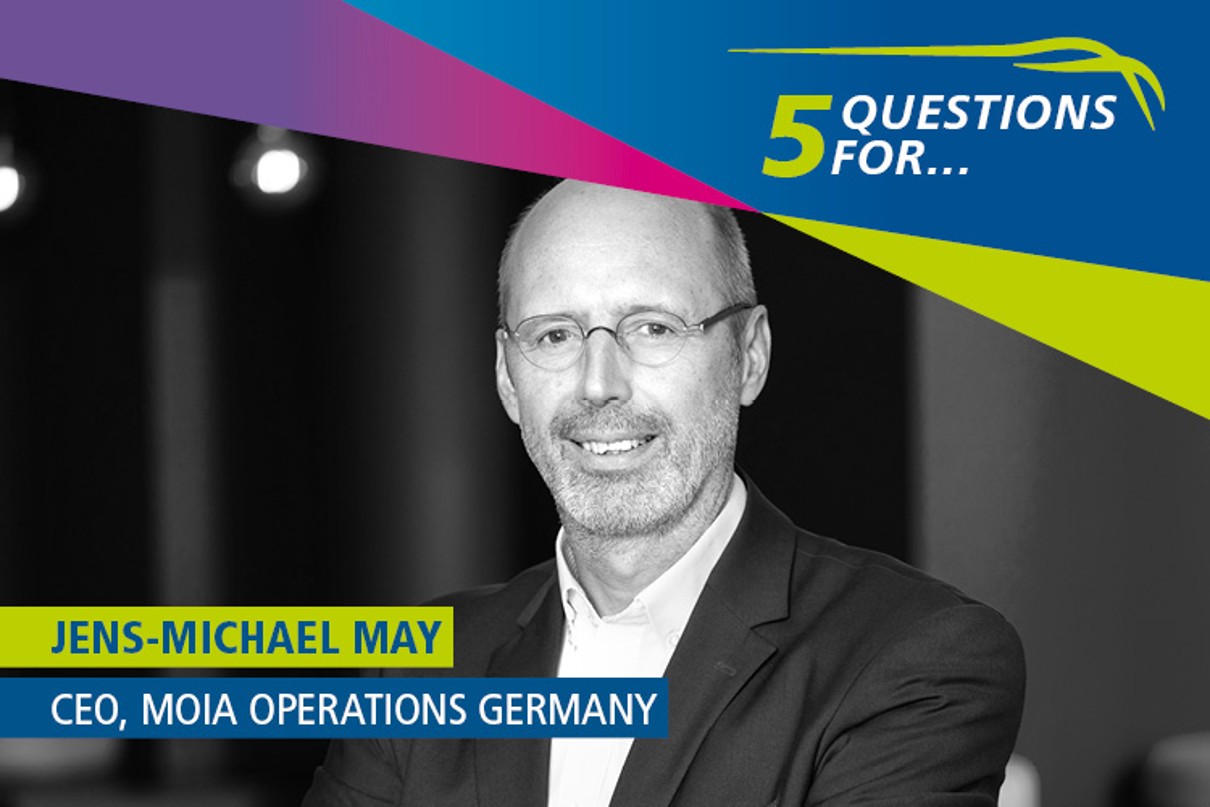Page content
5 questions for Jens-Michael May
What motivated you to work in the mobility sector? Which experiences or challenges in your work at Hamburger Hochbahn AG particularly influenced you in your career? How did you draw on these experiences to make your knowledge and skills benefit MOIA?
A major city like Hamburg cannot function without an extensive public transport network – just think of the many journeys one takes to work, a training centre or for leisure. At the same time, public transport is closely tied in with politics and business. Through joint projects in particular – the construction of the Hafencity for example – I have gained many fascinating insights into how a major city like Hamburg works. Personally, the environmental and climate-policy dimension of the work in bringing public transport and private mobility services together is something I find fascinating. That is the only way the transition to new forms of mobility and protecting the environment and climate can succeed.
Before I became managing director of MOIA I had worked for Hamburger HOCHBAHN AG since 1993, where for four years I was initially assistant to the CEO. Later on I occupied various management positions there. During the period of HOCHBAHN’s expansion I was appointed general manager in Wiesbaden and managing director in Munich, among other posts. At the same time I was managing director of two Hamburg-based bus subsidiaries.
That way, I learned about how the public transport system worked from the ground up, and in addition to strategy development about the details of operating bus services, including traffic management and financial controlling. That basic knowledge is of great help to me in my day-to-day work at MOIA.
How does MOIA work with other transport companies and urban networks in order to ensure the seamless integration of its services?
We work very closely together. In order to perfectly integrate ride-pooling in an urban transport system, any cooperation with local transport companies and the city’s authorities must be based on mutual trust. In January 2023 we joined the Hamburg transport network as a self-supporting service operating on demand. Our contract is valid from 2023 to 2025 and covers the use of vehicles offering barrier-free access.
At the same time, the fares for MOIA services are harmonised with those of the Hamburger Verkehrsverbund (HVV) in order to boost use of intermodal public transport. Integrating our fares has been made possible as a result of the ’Pilot projects for improving public transport’ development scheme of the Federal Ministry for Digital and Transport. We have also pledged to share information in order to benefit urban mobility as a whole, and to that end we remain in close contact with federal and state authorities

Jens-Michael May
How has MOIA responded to rising demand for environmentally friendly transport solutions? What steps have you taken to ensure that MOIA’s mobility services are sustainable?
Urban mobility options will greatly change in the years to come. The spread of urbanisation in addition to regulatory frameworks and not least a change in people’s attitudes will lead to a sharp rise in demand for eco-friendly mobility solutions. Cities and municipalities therefore want to make their transport systems more efficient and climate-friendly. With ride-pooling, we at MOIA want to actively help shape this transition both in cities and together with them.
Our services are all-electric, leading to a considerable reduction in CO2 emissions compared with conventional vehicles. Furthermore, these are charged with 100 per cent renewable energy, and we are working with numerous companies in Hamburg and Hannover to boost expansion of the charging infrastructure in cities as a whole. Naturally, we also focus on continually improving our operating procedures in order to save energy.
What role does technology play in MOIA’s services? How do you harness innovations and digital solutions in order to improve the customer experience?
At MOIA we are involved in the entire ride-pooling value chain, ranging from algorithms, apps, vehicles, fleet management to infrastructure.
However, the focus of our business model is on developing apps for customers as well as our drivers. We are continually upgrading these apps in order to improve the customer and driver experience and thus contribute even more to the transition to new forms of mobility and to society as a whole. Ultra-modern technology is also being used to develop our digital fleet and passenger management system.
Against the backdrop of our goal to offer a commercially scalable automated ride-pooling service after 2025, the aim must also be to simultaneously advance the development of these digital solutions for the new service.
What role do self-driving vehicles such as the ID. Buzz AD play in MOIA’s ride-pooling service?
Our pilot project together with Volkswagen Nutzfahrzeuge (VWN) in Hamburg is paving the way for the development of automated mobility-as-a-service (MaaS) by Volkswagen. In Hamburg we are laying the groundwork for developing and testing technologies and operating procedures surrounding the complex value chain of a mobility service.
VWN is developing the ID. Buzz AD, which is earmarked to operate as an automated ride-pooling vehicle in the initial period of this service. Over the coming months details of the vehicle’s individual features will be made public.


